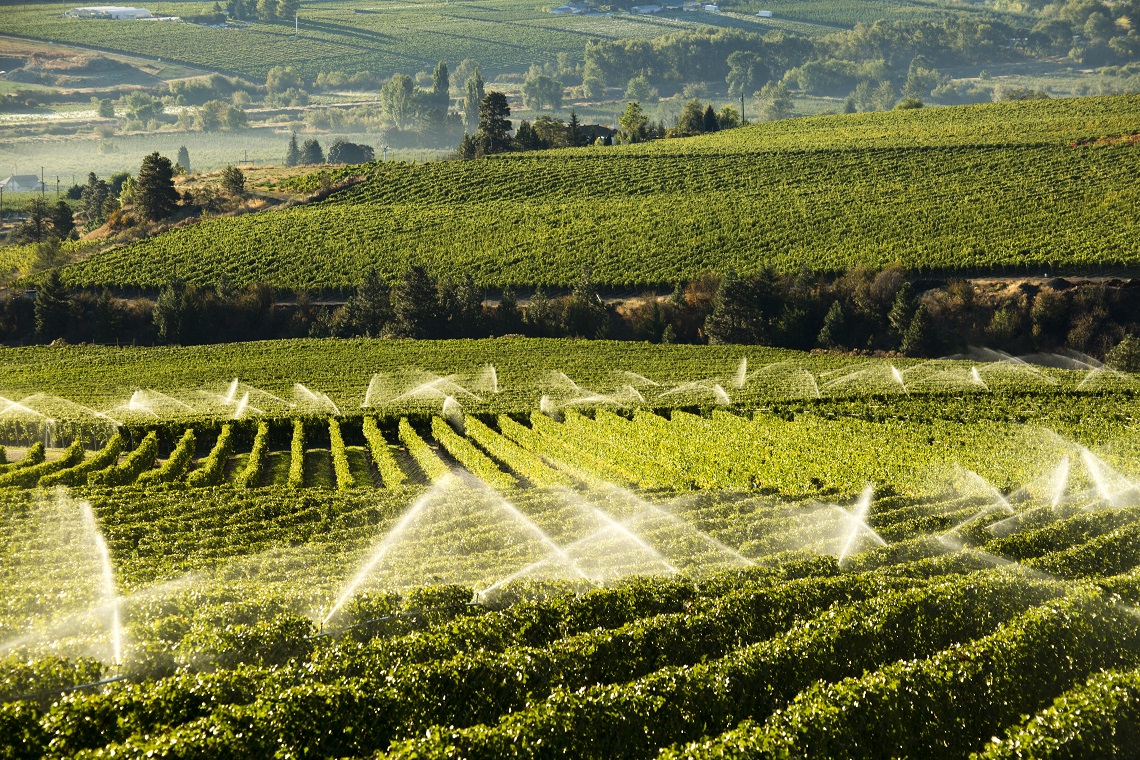Ten industry grower groups have this week come together to urge the State and Federal Governments to act immediately and free up water being purchased by water traders.
Australian Grape and Wine joined other Australian industry grower associations to request interim measures be put in place to free up water. The groups warn that without such measures, there is risk of a mass exodus from the land and greater hardship for drought-stricken communities, towns and small businesses.
CEO of Australian Grape and Wine, Tony Battaglene, said: “Australia’s drought-stricken communities are in peril and we need government to act now.”
“We can’t wait for more government inquiries. Time is critical and interim measures to stop non-irrigators slowly starving irrigators of much needed water while keeping prices high are needed urgently.”
Understanding the water market can be confusing if you’re not actively involved with it. At a basic level, it can be understood by looking at water rights as they usually exist in two different forms; entitlement (permanent water) and allocation water (temporary water).
Entitlement is a legal right to an ongoing share of water each year. Over the last 15 years, entitlements are not just dependent on land ownership and can now be bought and sold by anyone (for example, the State and Federal Governments now own about 28 per cent of the southern Murray-Darling Basin entitlements for the environment).
Allocation water is the volume allocated for use against permanent entitlements each season, varying depending on the entitlement type and seasonal conditions. In very wet years, entitlement holders will be allocated 100 per cent of their entitlement, while in very dry years they may get less than 50 per cent or nothing at all, depending on their type of entitlement.
Before 1 July 2014, only entitlement owners could buy and sell allocation water, which happened mainly between irrigators. But after this time and what remains in place today, is the freedom for anyone to buy and sell allocation, without having to own a water entitlement, land, or without ever using water for growing purposes.
Allocation water also once held a “use it or lose it” rule for the year it was allocated. Any unused water from this allocation was returned to the collective pool for reallocation the following year. But now, entitlement owners can carry over their unused water for use or trade the following season, as well as buy water to carry over this period. This varies greatly between states, irrigation districts and entitlement types.
The issue raised by the group of growing bodies is that companies without water needs for permanent farming irrigation or production supply have been allowed to buy up large quantities of water as an investment, withhold it from the market, and then sell it on for a profit.
The group of bodies pushing for the change said there is a serious problem when a single company bought up to nine per cent of the total water allocation in the southern Murray-Darling basin in the 2018-19 year. They say that the carryover rules were designed to help irrigators manage risk, not allow investors to hoard from the market across all seasons for profit.
“Many irrigators with permanent trees or vines, dairy cows or customer supply contracts have limited choices when it comes to water. They try and purchase the water, or they face the choice of losing their business and assets. There is no middle ground for them,” Battaglene said.
He explained that although the practices are legal, “it enforces hardship on other entities and may have long-term consequences for some sectors and flow on impacts to regional communities”.
“There is no time to delay. There is no room for politics. For many, this is an issue of survival.”
Chairman of Australian Table Grape Association, John Argiro described the problem and what the group were pushing for.
“Water needs to be made available to those who use it. When water becomes a commodity for speculation, putting rural and regional Australia at risk, I think it should be obvious to all that Australia has a problem,” he said.
“We are not asking to limit water trade – quite the opposite. We want governments to intervene to allow water already allocated to be put to consumptive use.”
The group further clarified that non-water-using entitlement owners and irrigators could work together and still produce a favourable financial return for the entitlement owners. They identified that prices should fluctuate based on normal supply and demand market drivers too. However, the current issue lies in the sheer scale of the impact some non-irrigators are having on the allocation market.
Entitlement owners and irrigators need each other to buy and sell allocations to benefit their respective businesses. As the group said, something needs to be done to ensure both sides of the market can be sustainable long-term.

